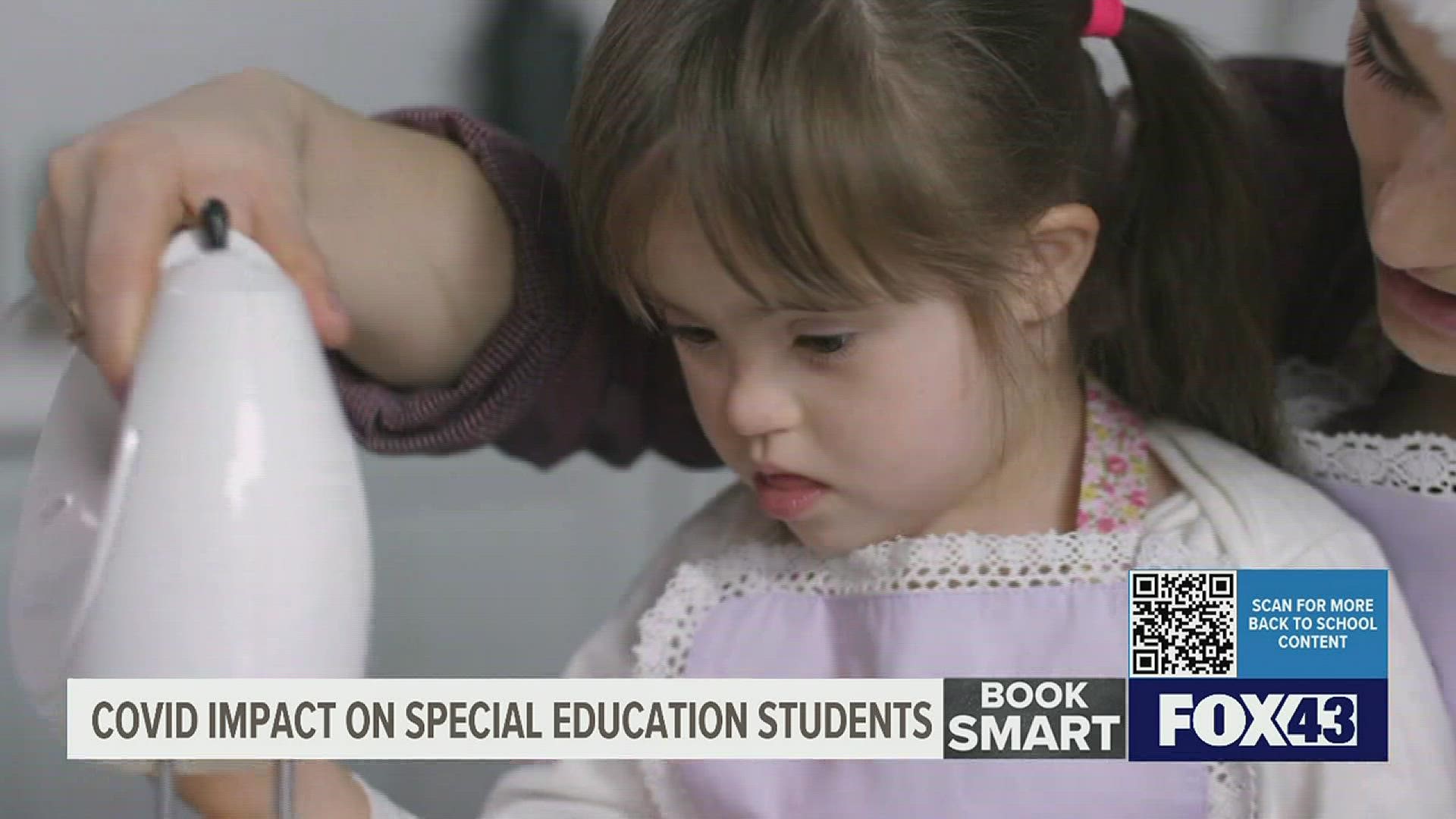YORK, Pa. — Ella Gipe is a 10-year-old attending fifth grade at Shaull Elementary School in Cumberland County. She lives with down syndrome and mild autism.
"We did have the option to go virtual all year if we chose, but we decided not to, because she benefits much more with in-person learning," her mom Lisa said.
Lisa also said that even with school in session, Ella still missed out on a number of therapies that were offered in school, pre-pandemic.
"All those things went virtual last year so that was very trying, so we are so thankful we went back in person," she said. "I mean, we made due, but it was very frustrating."
She isn't alone. A May 2020 survey of nearly 1,600 parents by Advocacy group ParentsTogether, found that only 20% of respondents said their children were receiving some special education services and 39% reported receiving no services at all.
By summer 2020, a larger poll showed more than 80,000 secondary and upper elementary students with disabilities may have also been facing more mental health challenges than their peers. In fall 2020, several school districts reported sharp spikes in the number of their students with disabilities failing their classes.
Sherri Landis works with ARC of PA, a nonprofit which helps people with disabilities. She says connecting families with support and resources has been very limited due to COVID-19.
"We have our concerns," she said. "I mean, it is difficult for the districts, and it's extremely difficult for the individual families receiving care.
The biggest problem, she says, is a lack of paraprofessionals, or trained aids that assist teachers in classes.
"The school districts are experiencing the same shortages as many other businesses and industries in the state," she explained. "We need paraprofessionals. We need special education teachers. There was a special education shortage before the pandemic and this has just made it worse."
Luckily for the Gipes, they haven't felt that pinch in the Cumberland Valley School District.
"I'm thankful we are in the district that we are in, because they recognized the importance of in-school learning, not just for children with developmental disabilities like Ella, but all kids, especially elementary school."
Landis admits not everyone has been as lucky as Ella and there's a lot of ground that needs to be made up.
"The school districts understand that this is a population of students that really need that extra support and so we're hoping that they work with the families in order to get that for all the students," she said.
For more information on the statistics mentioned in this story, you can find them here.

